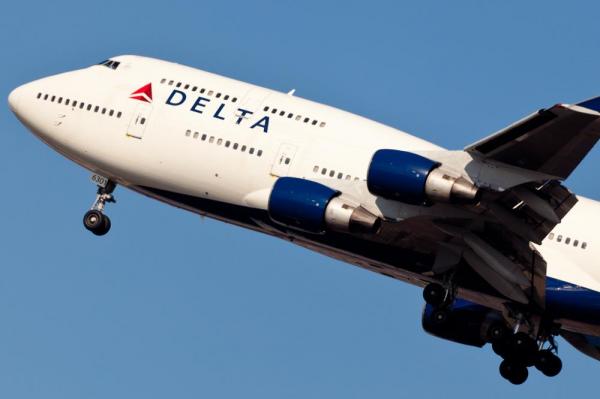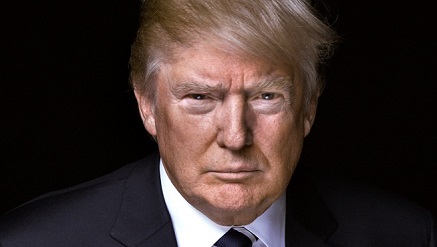Broadcasting
Delta Airlines apologizes to AIB over protocol Violation

Delta Airline has apologised to the Accident Investigation Bureau over the airline’s failure to notify the agency on emergency landing of its Airbus 330-200 aircraft on Tuesday night.
The Atlanta bound Delta Flight 55, which departed Lagos Tuesday night returned few minutes later to Murtala Muhammed International Airport when one of the engines caught fire.
219 passengers on board exited through the emergency slides with five of them injured in the process. However, the airline has at the time of filing this report had made arrangement to airlift its passengers by bringing in another aircraft.
A statement issued by Mr. Tunji Oketunbi, General Manager, Public Affairs, AIB, in Lagos on Thursday, said the apology letter was signed by Miss Shannon Masters, Delta Airline Manager, Air Safety Investigation.
Masters, led a team of the airline officials, including the technical crew of the flight, and the airlines Lagos Airport Station Manager to the AIB, expressed the airline’s regret for the oversight, adding that it was not intentional.
“We sincerely apologise for the error and we promise to cooperate with AIB in the investigation of this occurrence.”
Mr. Akin Olateru, Commissioner AIB, , while accepting Delta’s apology, said AIB had already commenced investigation into the serious incident and welcomed the airline’s cooperation.
“We look forward to receiving cooperation from Delta Airline as we work to determine the cause of this serious incident in the interest of safety.’’
AIB had frowned at the American carrier’s failure to notify it of the incident involving its aircraft in line with Nigerian air safety regulations and international practice.
The airline was believed to have notified the United States National Transportation Safety Board of the occurrence immediately, in line with the U.S. laws.
Nigeria, as the state of occurrence under the International Civil Aviation Organisation, Annex 13, is responsible for investigating any aircraft occurrences within her airspace.
The State of registry of the aircraft and the airline may serve as observers.
Broadcasting
Starlink, DStv, Others Pay “Peanuts” to Operate in Nigeria- Minister

Uche Nnaji, minister of Innovation, Science and Technology, has, said that the federal government has been exploring measures to curb the growing exploitation of satellite technologies, lamenting that Starlink, DStv, and a few other service providers pay ‘peanuts’ to operate in Nigeria.

According to him, some foreign investors have been known to find a way to bypass the system and deprive the government of its mandatory revenues.
The minister made the revelation at a stakeholders’ Workshop on Space Regulation organised by the National Space Research and Development Agency (NASRDA) in Abuja.
Addressing the gathering, Nnaji noted that if the regulation of space is properly handled, it would not only boost revenue, it will also whittle down the growing activities of pipeline vandals, insurgents and criminal groups.
He said, “In the near future, we will move from the $ 1 trillion economy to $ 5 trillion. So with this space regulation and licensing. Starlink and most of them, including DSTV will come here, some will pay peanuts and shortchange Nigerians. These are part of what we want to address through this space regulation and license.
“You can be sure that yearly, if we are going by what my capacity DG of NASRDA has said, we will be looking at over N200 billion annually, with annual increment of 18-20 per cent. This is just one of the initiatives coming out of the agency.”
Continuing, Nnaji said the era of satellite pay-tv or radio losing signal when it is raining will soon be a thing of the past.
The minister said they have discovered some service providers are not operating on the right bandwidths hence the loss of signal when there is a change in weather.
“All these challenges of your TV or radio not working or losing signal whenever it is raining are because the DSTV and the likes are not hosting their equipment at the right bandwidth. They will host it at the lower bandwidth, where they will not spend money on the higher bandwidth.
“But with the regulation, we will force them to move it up to where it’s supposed to be. Because if you move it up to where it’s supposed to be, you won’t have any of those problems of losing signal as soon as it starts raining. So this is part of the many reforms that are going on under this very capable man, Dr. Olumide Adepoju.
Broadcasting
Nigeria Eyes $20Bn Annual Revenue from Space Economy – Minister

Federal government has announced its target of generating over $20bn annually from Nigeria’s rapidly evolving space economy, leveraging a newly launched space security platform and comprehensive regulatory reforms.

Speaking at the launch event in Abuja on Tuesday, Chief Uche Geoffrey Nnaji, minister of Innovation, Science and Technology, unveiled the government’s strategic plans to capitalize on space technologies for national revenue generation, particularly in key sectors like oil monitoring and maritime surveillance.
“With space-based surveillance, we can detect vessels entering Nigerian waters—even those that switch off their transponders to evade detection. We’ll be able to track them, ensure compliance, and collect the appropriate fees. This initiative alone could yield over $20 billion annually,” he said.
The Minister emphasised that Nigeria’s space economy is no longer a futuristic dream but a present-day economic lever.
“Space is no longer the domain of dreamers alone—it is now the frontier of serious business, innovation, and national security,” he declared.
“Our task is clear: to establish a transparent, well-regulated ecosystem where public and private actors—from startups to established institutions—can thrive,” he added.
The new space security platform is tied to the enforcement of Nigeria’s 2015 Regulations on the Licensing and Supervision of Space Activities.
Section 4(1), mandates that no one “shall carry out activities to which the Regulations apply except under the authority of a license granted by the National Space Council.”
These regulations aim to hold local and foreign operators—such as Starlink and DSTV—accountable under Nigerian law.
“Currently, some pay appropriate fees, while others contribute minimally, shortchanging Nigerians. This new regulatory framework will address that imbalance,” Nnaji stated.
Dr. Matthew Adepoju, director general, National Space Research and Development Agency (NASRDA), echoed the Minister’s sentiments, highlighting the economic, security, and youth empowerment potential of the sector.
“Nigeria must remain a forward-thinking nation. We must ensure that space activities within our jurisdiction are properly regulated, commercially optimized, and aligned with international best practices,” Adepoju said.
According to NASRDA, Nigeria can generate about N200bn annually from space-related activities, with potential growth rates of 18–20 per cent per year.
The workshop, which gathered key stakeholders from government, academia, and the private sector, marks a pivotal shift in Nigeria’s approach to space as a tool for development.
It also underscores the urgency to reform existing legal frameworks.
Dr. Olisa Agbakoba, legal expert, who also spoke at the event, criticized Nigeria’s outdated space laws.
“Our current laws are outdated. The NASRDA Act is not a true space law. We need a clear economic strategy for space, legal reform, and an updated National Space Policy,” he said.
Agbakoba proposed creating a Center for Space Law and emphasized that space should contribute at least 2% to Nigeria’s GDP.
“Let’s learn from countries like the UAE. Why not aim for Nigerian astronauts—male and female?” he asked.
Mrs. Esuabana Asanye, permanent secretary of the Ministry, while unveiling the new NASRDA logo, positioned the current phase as a new era in Nigeria’s space journey: “We are now turning the page from the first 25 years, and ushering in a new era—one that will redefine Nigeria’s presence in space.”
Broadcasting
Trump Strikes with Tariffs, Nigeria Stands Down

By Lukman Otunuga, Senior Market Analyst at FXTM
On Wednesday 9th April, US reciprocal tariffs go into effect on numerous countries including Nigeria.

Washington has slapped 14% tariffs on the country’s exports, but Nigeria’s government has decided to stand down on any retaliation. It remains to be seen whether this was a strategic move to prevent further tariffs from the United States. Nevertheless, these tariffs may impact growth given how Nigeria’s exports to the US have ranged between $5-6 billion annually.
One could argue that Nigeria is somewhat insulated given how over 90% of exports are comprised of crude oil and gas products. Nevertheless, growing concerns around Trump’s trade war tipping the global economy into a recession is a major risk for emerging markets.
Beyond trade developments, Nigeria remains exposed to volatile oil prices. Last week, Brent and WTI both recently logged their steepest weekly losses in over a year. Oil prices remain pressured by deepening trade tensions and OPEC+ announcing an unexpectedly large supply boost. Crude oil has shed over 13% this month, dragging year-to-date losses closer to 15%. Such a development may complicate the government’s ability to implement the 2025 budget based on oil prices at $75 a barrel.
The sharp selloff in oil could mean more pain for the Naira which is among the worst performing emerging market currencies. Naira has shed 4% year-to-date versus the dollar and may extend losses if lower oil translates to falling foreign exchange reserves.
On the data front, Nigeria will reveal its latest inflation figures in mid-April. Back in February, the annual inflation rate dropped to 23.2% to its lowest level since June 2023 while food inflation also cooled to 23.5% – its lowest rate since September 2022. While the decline in CPI has been attributed to a technical adjustment, further signs of cooling price pressures could spark discussions around potential CBN rate cuts in the second half of 2025.

 E-Financial3 days ago
E-Financial3 days agoAfDB Mobilizes $2.2Bn to Support Nigeria’s Agriculture

 News3 days ago
News3 days agoMTN Pens Moving Tribute to Pascal Gabriel Dozie, Former Chairman

 E-Business3 days ago
E-Business3 days agoNatasha: TMG Demands Probe of Alleged Data Breach in Failed Recall

 General News3 days ago
General News3 days agoNIPOST Threatens Courier, Logistics Service Providers

 E-Business3 days ago
E-Business3 days agoCJN Warns Judicial Officials against Data Breaches, Cyber Attacks

 Telecom3 days ago
Telecom3 days agoNCC Issues 90 Days Deadline to Telcos to Resolve Subscribers’ Unclaimed Airtime

 Broadcasting2 days ago
Broadcasting2 days agoStarlink, DStv, Others Pay “Peanuts” to Operate in Nigeria- Minister

 News3 days ago
News3 days agoNIGCOMSAT, Jigawa State Empower 150 Youths on Satellite New Innovations



























